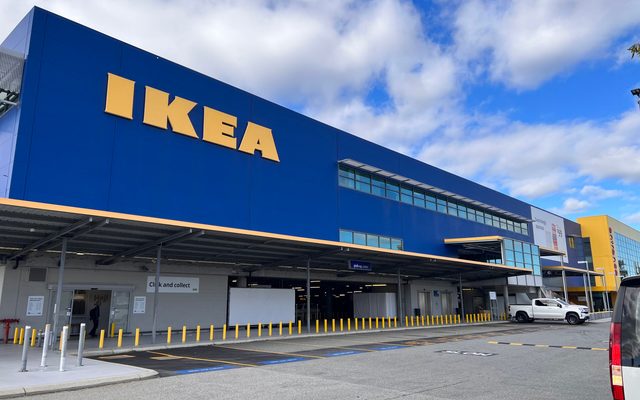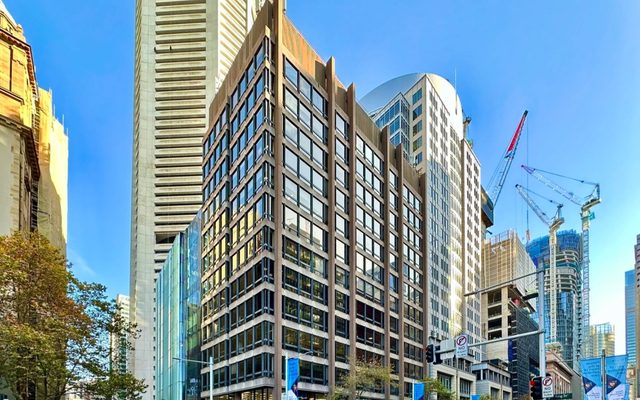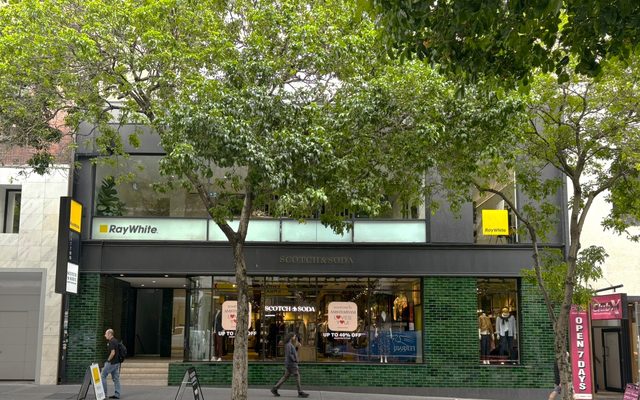This article is from the Australian Property Journal archive
JAPANESE retailers have been missing from Melbourne's retail scene since the closure of Daimaru, but they are coming back. Daiso is latest brand to open a store in CBD.
Colliers International manager of retail leasing Ben Tremellen and Savills’ leasing agent Michael Di Carlo, together with Daiso property executive and former Coles Group head of property Tim Boyce have signed a new lease at Level 1, 2 Elizabeth St.
Daiso will occupy 1,800 sqm at Level 1, 2 Elizabeth St on a 10-year lease, with the doors due to open in late August.
Tremellen said whilst Daiso had several existing franchise outlets in Australia, this store, at the corner of Elizabeth and Flinders streets, would become one of the first company-owned and operated stores to be opened in Australia.
Daiso opened its first company-owned store at the Myer Centre in Brisbane on April 23 to strong customer traffic.
“Traditionally, retailers have had a strong preference for ground floor shop fronts, but as vacancy across the Melbourne CBD remains tight I believe we will see an increase in what we call vertical retailing, particularly with big box international retailers.
“At Colliers International, we are working with numerous landlords to activate multiple levels for retail use. This new Daiso store will be one of the largest Level 1 retail offerings in the Melbourne CBD when it opens later this year,” he added.
Tremellen introduced Daiso to leasing agents Savills after coming on board to help the popular Japanese retailer find a site for their Australian flagship. Founded in Japan in 1977, Daiso now has more than 3,500 stores worldwide and is a Japanese household name.
Daiso’s Australian CEO Kit Cheong – a former senior executive at the Coles Group and Pacific Brands – said the Daiso concept of providing everyday life solutions for one price of $2.80 was perfectly suited to the Australian retail market.
Di Carlo declined to confirm the rent but said Daiso would pay more than $200 per sqm over office rents, which represented exceptional value for building owner Fivex Commercial Property and an affordable retail rental for Daiso.
The deal also firmly establishes a successful re-launch of Riverview House involving a multi-million dollar refurbishment following the departure of long-standing tenant Commonwealth Bank.
Di Carlo said the space was originally earmarked for offices but agents were able to work with both the owner and tenant to deliver a concept that allowed the area to be activated as a retail store, with access via escalators from Flinders St.
He said the building’s location where passenger numbers were expected to double from 200,000 per day to 400,000 per day within 10 years – and the diverse mix of food retail, residential and education uses surrounding the building, were key factors in Daiso’s decision-making.
Fivex spokesperson Joshua Berger said securing Daiso as a tenant meant Fivex could now confidently proceed with the full redevelopment of the building.
“Melbourne City Council’s plans to convert the Elizabeth St block from Flinders Lane to Flinders St to a pedestrian mall, combined with the fact that the building features as background on news programs most nights and offers unrivalled signage opportunities, add to the natural advantages of Riverview House.
“It’s no surprise that an international retailer has taken this unique opportunity to position itself in this unique location at the centre of one of Melbourne’s most important transport and pedestrian hubs,” Berger said.
According to Colliers’ recently released International Retailers: Australia is Hot Property whitepaper, 28 international retailers are either looking or already in the process of opening stores. Colliers estimates demand of around 220,000 sqm over the five years as these retailers seek to open around 235 stores.
Tremellen said overseas retailers were drawn to the local market due largely to the strength of the Australian economy.
“Domestic growth prospects have stalled for many retailers in North America and Europe and in comparison to these countries Australia’s fundamentals are strong,” he said.
“The opening of Topshop in Melbourne was the brand’s most successful franchise opening after the retailer was able to use data gathered from online transactions to pinpoint demand. This is a process we are seeing a vast majority of international retailers adopting – testing the waters in the Australian market with online sales before opening their bricks-and-mortar stores.” Tremellen concluded.
Property Review



